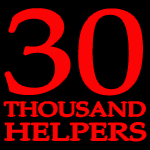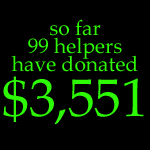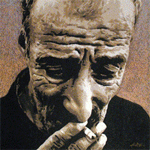
Difficult Group Belongs To
Serbia, Banged-Up Germany
By STEVE SUSI
One Great Season
Since the ping pong balls were drawn in December, Group D has remained the most difficult group to predict for many, thanks to the overall high quality of all four teams involved and the rash of big-name injuries that's dominated the news and insomniated the managers these past few months. So let's take a look at what was, at least when the groups were announced, what had been termed this World Cup's "Group of Death."
TEAM OVERVIEWS
Top seeds in the group are Joachim Löw's Germany. Semifinalists on home soil in 2006 and European runners-up two years ago, the Germans polkaed through qualifying without a loss — on the scoreboard, anyway. The departure of, among others, captain Michael Ballack to torn ankle ligaments suffered in Chelsea's FA Cup final victory over Portsmouth is as big a blow to their midfield's strength, leadership and overall spirit as anything that could befall them. He's asked his teammates to forget about his injury; the opposition won't, you can be sure of that. Without having to scheme around the experienced, respected 33-year-old veteran, the rest of Group D's game plans just got a lot less complex.
BIO: About Steve Susi
The group's other European candidate is Serbia, which won its qualifying group with France, Austria, Lithuania and Romania — and earned the right to join the World Cup ranks in South Africa as an independent nation for the very first time (they were recognized as Serbia & Montenegro at WC06, and their previous nine appearances were under the Yugoslavian flag). Serbian pride will ooze from every pore and into every decibel, on the pitch and in the stands, as this fiercely nationalistic country has finally achieved its dream of representing its own people before the world on its biggest stage.
FIFA's No. 32-ranked Ghana hope to exert their will upon opponents in Africa the same way they have in winning four African Nations Cup titles over the years. However, in an incredible turn of misfortune eerily similar to that of group-mates Germany, their own midfield powerhouse who plays club ball for Chelsea, Michael Essien, is off the roster due to injury, leaving the middle to Serie A specialists Stephen Appiah (Bologna) and Sulley Muntari (Inter Milan). Without the superstar lovingly nicknamed "The Bison," Ghana will have to play out of their heads if they hope to advance to the second round. Where better to do so than on their home continent?
MORE: Meet The 2010 OGS World Cup Writers
Completing the foursome are Australia, who made it to the final 32 after competing in the Asian qualifying zone for the first time, albeit against a pretty easy group comprised of Japan, Bahrain, Qatar, and Uzbekistan. In fact, they finished with 20 points and a +11 goal differential. Led by Dutch coach Pim Veerbeek, the Aussies will be hopeful of equaling their 2006 display, when, coached by another Dutchman, Guus Hiddink, they advanced to the second round and were barely topped by eventual winners Italy, 1-0. There's quite a bit of talent on this side — nearly a quarter of the 23-man roster play in the Premiership — and with a crafty Dutch coach mandating total football, overlook them at your peril.
Team Roster Average Height:
- Serbia 6' 1.1"
- Germany 6' 0.4"
- Australia 6' 0.1"
- Ghana 5' 11.1"
Historic Sidenote
Group D may see a pretty cool bit of history made on June 23 at Soccer City in Johannesburg. If Germany defender Jerome Boateng and Ghana midfielder Kevin-Prince Boateng take the field at the same time, they will become the first brothers to compete against each other in the World Cup.
THE TEAMS
Germany (nickname: Die Nationalmannschaft [The National Team])
The three-time Cup champs and seven-time finalists are always poised to vie for the 14-pound gold trophy, and South Africa 2010 should follow in that tradition. However, a wave of injuries has the quadrennial title contenders in a state of disarray, with the losses of skipper/midfielder Michael Ballack (torn ankle ligaments), defender Heiko Westermann (broken left foot), midfielder Simon Rolfes (knee), first-choice goalkeeper Rene Adler (ribs), and midfielder Christian Traesch (ankle). Yes, you read correctly — three middies including the captain have been carted off the final roster, severely limiting their options and depleting the composure and experience so crucial to advancing in this tournament.
COMING MONDAY:
Mike Dick Previews Group E
In Ballack's absence, the immense weight falls to the shoulders of Stuttgart's Sami Khedira and Werder Bremen's attacking midfielder Mesut Özil, the latter of whom possesses an uncanny ability to unzip defenses with his speed and ball-handling, and might make the difference in helping the Germans eke their way out of what promises to be a close group.
To add to the team's cascade of question marks, both Schalke 04 striker Kevin Kuranyi and Werder Bremen midfielder Torsten Frings have been left back in the Fatherland, much to the anger of many supporters and a scrutinous press, and Joachim Löw must make a decision as to which goalkeeper will be his No. 1: experienced and unfortunately named Bayern Munich stopper Hans-Jorg Butt, Bremen's Tim Wiese or 24 year-old Schalke 04 keeper Manuel Neuer.
With such chaos, look for young, lesser-known German talent, of which there always seems no end, to step up and make names for themselves — or it could be an early auf Wiedersehen for the men in black, red, and gold.
Serbia (nickname: The White Eagles)
Led by the only man to coach La Liga’s "Big Three" (Real Madrid, Atlético Madrid, and Barcelona), Radomir Antic, the White Eagles qualified for South Africa in intimidating fashion, decimating Romania 5-0 in their final match and tallying more points than WC98 champs France to win their group and secure a place at the 2010 Cup table.
This defense is stout, boasting Chelsea's Branislav Ivanovic, Borussia Dortmund's Neven Subotic, and Man U's bruiser Nemanja Vidic. I wouldn't want to come across any one of the three in an alley, dark or otherwise. In other words, I expect them to give out more black eyes than goals in group play.
The tallest side in Group D — the average Serb has a full two inches’ height advantage over his Ghanaian opponent — is unbeaten in its last four matches, and you can be certain they'll expect Birmingham City's giant 6' 7.5" striker Nikola Zigic and Ajax sensation Marko Pantelic to bully their way into the back of the net and on to the second round.
Ghana (nickname: The Black Stars)
The Black Stars took full advantage of their first World Cup campaign in Germany 2006 when they reached the Sweet 16, only to be handed walking papers by Brazil.
Four years later, they're coached by cerebral tactician Milovan Rajevac — the team's third Serb and tenth manager in six years — who's laid down the hammer and instituted a new level of discipline that was first met with disdain, and then celebrated when Ghana made it to the African Cup of Nations finals (losing 1-0 to Egypt). Crowd support from all African national attendants will give these speedsters a big boost of confidence during the group stage, which they'll need in order to soldier on without their superstar, Chelsea midfielder Michael Essien, and surpass their Round of 16 performance in Germany.
Despite an otherwise experienced midfield that includes Inter Milan's Sulley Muntari and Bologna's Stephen Appiah, who are backed by a solid core of defenders, they have a shallow bench and lack a world-class forward. However, if the games stay close, they have every chance of making the quarters.
Oh, and keep your eyes peeled for the devious Olympique Marseille winger Andre "Dede" Ayew, son of Ghanaian legend Abedi Pele. The 20-year-old is the only African captain to win international titles at every level, and has a lot to prove — he's French-born, and many fans of Les Bleus resent his opting to play for Ghana, despite multiple overtures from the European nation's football authorities.
Australia (nickname: The Socceroos)
Under the guidance of Dutch manager Guus Hiddink in 2006, the Socceroos overachieved, in many viewers' minds, by making the World Cup Round of 16 before being dismissed by eventual champions Italy. This time around, with another Dutch manager at the helm, Australia will make every effort to return to the knock-out stages as the surprising underdog.
Coach Pim Veerbeek has been criticized widely for his boring style of play, which builds slowly and relies heavily on switching fields with long crosses. He finds such a statement a compliment, however, as all Australia have done is achieve their goal of qualification without a single loss and allowing just one goal during the process. A disciple of total football himself, you can bet this edition of the 'Roos will be well-drilled and ready for a fight.
Everton’s Tim Cahill and Fulham Goalkeeper Mark Schwarzer had great individual Premiership seasons and hope to keep that momentum going in one of the tournament's toughest groups. Young and talented Galatasary forward Harry Kewell is still recovering from a groin injury, but has resumed training with his national teammates, following a season which saw him notch 14 goals for his Istanbul side.
PLAYER TO WATCH
Mesut Özil
After an outstanding season that started with stunning performances at the European under-21 Championships in Sweden last summer — leading Germany to the title and earning Man of the Match in the 4-0 victory over England in the finals — and culminated in 11 goals for Werder Bremen in the Bundesliga, this attacking midfielder hopes to achieve national team success again, this time with the big boys.
After fending off many invitations to play for his parents' country of birth, Turkey, the German-born playmaker is often accused of having eyes in the back of his head and a smooth seventh gear you’ll only find in a Mercedes-Benz S-Class. This rare combination of acceleration and deft ball-handling results in dizzied defenders and dazzled spectators, and German supporters far and wide claim he's their next No. 10.
It doesn't take a Beckenbauer to assume Coach Löw intends for Özil to create the kind of chances that Miroslav Klose can finish — and knows that this kid might be the key to scoring enough to overcome the goals allowed by an injury-laden, Ballack-less midfield.
FIXTURES
- June 13 Germany v Australia: Durban
- June 13 Serbia v Ghana: Pretoria/Tshwane
- June 18 Serbia v Germany: Nelson Mandela Bay/Port Elizabeth
- June 19 Australia v Ghana: Rustenburg
- June 23 Ghana v Germany: Johannesburg
- June 23 Australia v Serbia: Nelspruit
PREDICTION
Out of the gate, Group D was tagged as the "Group of Death," but now on the doorstep of the World Cup, we’ve seen injuries reduce the star power of this group dramatically, the two best examples of which being Chelsea teammates Ballack (Germany) and Essien (Ghana). Expect the matches and point totals to be tight the whole way, with the likelihood that a number of games will be drawn and tensions on the final day will reach critical-mass levels. Ghana and Australia will most certainly have their chances to see the second round, but a physically imposing, fearless Serbia and an admittedly hobbled Germany will prove to be too much in the end. (Hey, they’re still Germany for chrimeny’s sake.) Serbia wins the group and Germany limps alongside them into the Round of 16.
 Sunday, June 27, 2010 at 8:27PM
Sunday, June 27, 2010 at 8:27PM  Group D,
Group D,  Steve Susi,
Steve Susi,  World Cup
World Cup 









